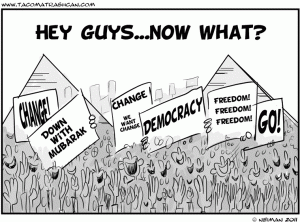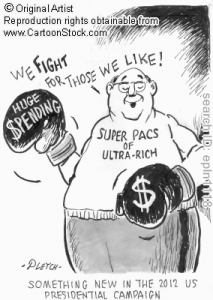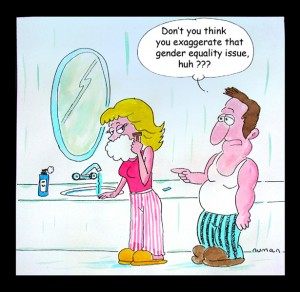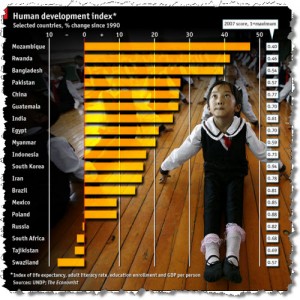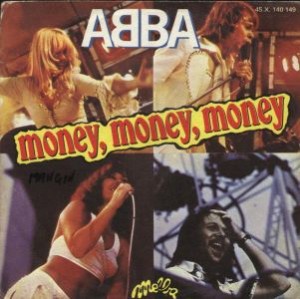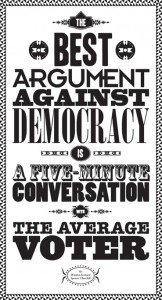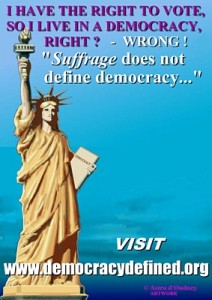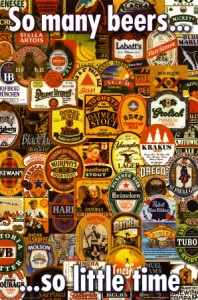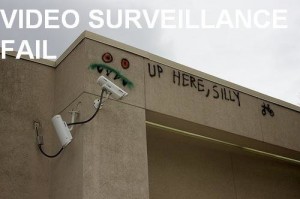As I have posted previously, there have been many accusations of democracies endeavouring to assimilate other nations in their own discourse through the introduction of “democratic ideals”. A poignant case at point is that of 19 NGO officials that have been charged with operating illegal funds in Egypt recently.
Many Egyptians from many different backgrounds share the
military-led government’s suspicions of the motives of the American colossus. The New York Times quotes one activist, for example, who said, “Eighty percent of the people think this is America’s work,” as he surveyed the wreckage left on his street after nearly a week of clashes between protesters and security forces in Cairo. He adds, “America does not like Islam.” And some members of the newly constituted parliament have told the Egyptian reporters that they look forward to the results of the investigation, arguing the US is at fault for violating local laws that barred foreign financing of non-profits. Previously, that newspaper had reported various groups and individuals directly involved in the Arab Spring, including the April 6 Youth Movement, had taken part in training by these American groups, a development that was not viewed with total equanimity by many Egyptians.
http://dailymaverick.co.za/article/2012-02-08-egypt-a-dangerous-habit-spreading-of-democracy
At issue is whether NGOs have overstepped their jurisdiction and welcome in the domestic affairs of Egypt. It seems like there is a political agenda when the humanitarian efforts are led by the United States that dominate the international political arena. It is understandable that outreach efforts are being conducted in Egypt after much political unrest. However, the extent to which the NGOs are interfering with domestic governmental affairs is a little over the top. I agree very much with the standpoint that this “over-reaction” is reasonable from the Egyptian government. “Sullivan says, “I understand the purpose of the NDI and the IRI. But this is a newly freed state and a very brittle and emotional environment. It’s not the best environment for them to work. How would we react if a foreign country came here to teach us how to conduct elections?” National pride and political climate is the major stimulant of this conflict.
A video on the Egyptian situation: Egypt’s Ruling Generals Play Risk
